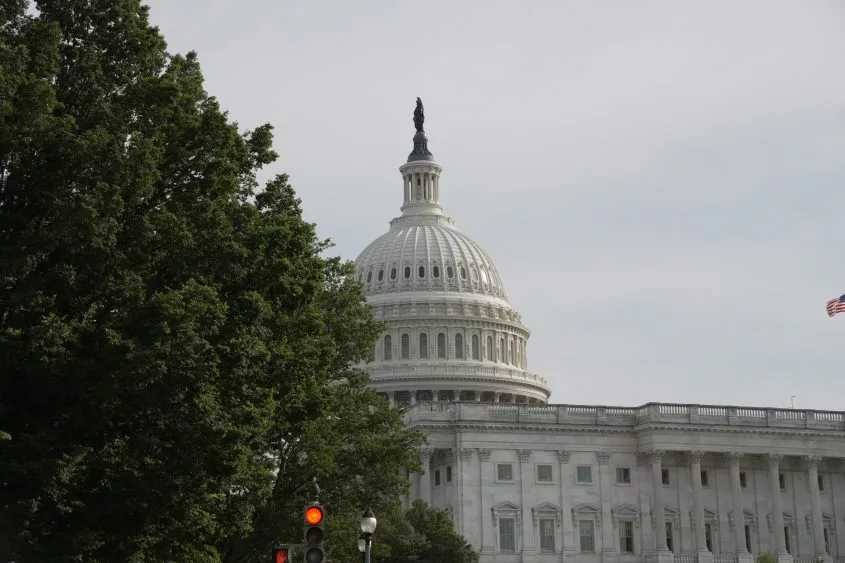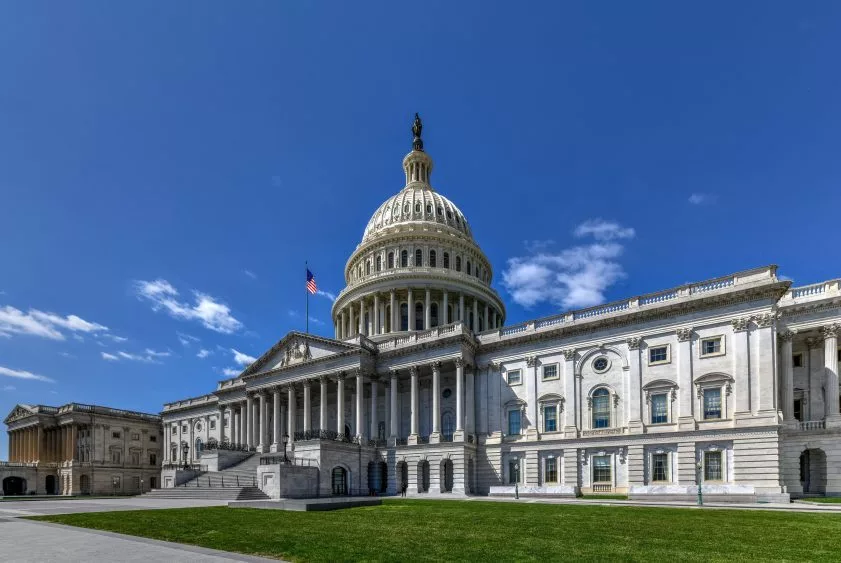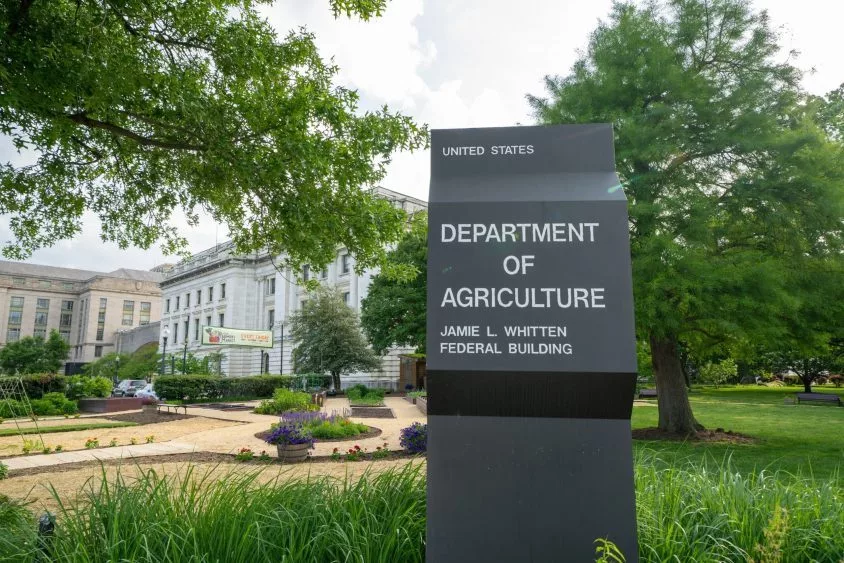(WASHINGTON D.C.) — As time keeps ticking on the end of the 118th Congress, Republicans and Democrats on Capitol Hill are running out of time to provide an extension of the expired 2018 Farm Bill. Plus, the possibility of economic assistance to farmers is seemingly coming into question and it now may be on the chopping block.
According to statements from Republican and Democratic leadership on the respective Senate and House Ag Committees, it appears they are at an impasse on getting economic assistance as part of a Farm Bill extension within a year-end continuing resolution.
Senate Ag Ranking Member John Boozman (R-AR) and House Ag Chairman Glenn “GT” Thompson (R-PA) said in part that “America’s farmers have lost over $30 billion this year. And for the last few months we have led many of our colleagues in raising the concerns of the farm community in meetings, in hearings, on the House and Senate floors, and in private conversations with other Republicans and Democrats. We are deeply disappointed to learn that congressional leadership is failing to provide our farmers with the economic assistance they need to weather the crisis they are currently facing. Last night Republican leaders offered Leader Schumer and Leader Jeffries a $12 billion economic aid package for our nation’s farmers, which they rejected. It appears that congressional Democrats have not learned the lessons of the most recent election and continue to neglect the needs of rural America.”
The Republicans statement continued saying “The failure to include economic assistance will have devastating and lasting consequences on our farm families, the rural communities in which they live and American agriculture. For that reason, we intend to oppose any supplemental spending package that does not provide meaningful assistance to our farmers. Our farmers work too hard and risk it all each year so we can have the safest, most abundant, and most affordable food supply in the world. They deserve our help now.”
Meantime, retiring Senate Ag Chairwoman Debbie Stabenow (D-MI) and House Ag Ranking Member David Scott (D-GA) said in their own statement that Republican leadership has turned down a $10 billion dollar proposal. According to the statement from Senator Stabenow and Congressman Scott, they say “for weeks, congressional Democrats have provided a pathway to a farm bill extension that will deliver tens of billions of dollars in economic assistance and investments in farm bill programs that farmers rely on. Republican Leadership turned down this $10 billion proposal, rejecting needed economic assistance and increased conservation spending for decades. It is important to stress that this proposal is paid for and does not take any funding away from the critical natural disaster aid that has been requested. Their eleventh-hour offer fell short of what farmers need, shortchanged critical farm bill programs, and steals from critically needed assistance to address recent natural disasters. We can and should do both economic and disaster assistance, not pit one against the other. The coming onslaught of farm foreclosures and retirement sales is on the Republican Leadership.”
Multiple agriculture groups have voiced their concerns about the impasse on economic assistance over the weekend. Chandler Goule, CEO of the National Association of Wheat Growers (NAWG), provided the following statement saying “NAWG opposes any continued resolution that does not include economic assistance for farmers. We are disappointed that leaders in Congress couldn’t find common ground to provide relief to farmers experiencing a financial crisis and urge them to continue working on a package that meets the needs of rural America. Wheat growers have seen their prices drop by over 36 percent since the 2022/23 marketing year and need the certainty an economic assistance package can provide before the end of the year. Period. Congress has already failed to pass a robust farm bill, and the lack of leadership in reaching an agreement will continue to hurt farmers who feed America and the world.”
National Council of Farmer Cooperatives President Chuck Conner said “reports from the supplemental funding/continuing resolution packaged being negotiated today fails to include critical economic assistance for American farmers facing the one-two punch of low prices and skyrocketing input costs. It would fall far short of what is needed to ensure the survival of thousands of producers across the country. We urge congressional leaders to rethink this approach, negotiate in good faith, and keep their promises to farmers. Without such action, NCFC can not support such a bill and would urge a ‘no’ vote on the measure.”
Kenneth Hartman Jr, president of the National Corn Growers Association, released the following statement saying “We are deeply disappointed that congressional leadership appears to be at an impasse over crucial economic assistance for farmers in an end-of-the-year legislative package. Corn growers are faced with low prices and high input costs and economic aid would provide them with critical relief during challenging economic times. While these developments are disheartening, we call on Congress to resume negotiations and pass legislation that includes economic assistance while there is still time.”
Caleb Ragland, president of the American Soybean Association and soy farmer from Kentucky, said, “We urge congressional leadership to return to the negotiating table and find a path forward. A package that does not include both economic and disaster assistance for our farmers who have suffered significantly from unforgiving market conditions, disastrous weather phenomena and for many, a combination of both, simply does not meet the mark for what agriculture and specifically, our soy growers, need. We will oppose any supplemental spending package that does not provide meaningful assistance to farmers who need help now to stay afloat in 2025 and beyond.”
National Sorghum Producers Chair Amy France, a sorghum farmer from Scott City, Kansas, released the following statement saying “Farmers are operating under an increasingly bleak economic landscape in 2024, and projections for 2025 offer little improvement. Amid growing financial strain, the industry has emphasized the importance of assistance, but Congress has yet to take action. These mounting challenges pose significant risks to the financial viability of many farming operations. While this assistance will not make producers whole,it would be an essential step in helping farm families navigate the difficulties brought on by economic and weather-related hardships in 2024. We urge agricultural leaders in Congress to demand that the supplemental spending bill include substantial financial aid for farmers, and if it doesn’t, we ask that they vote against it.”
The National Cotton Council (NCC) strongly opposes any supplemental spending package that lacks meaningful short-term assistance for farmers. “We urge Congressional leadership to return to the negotiating table to find a path forward on economic assistance. If not, we will vigorously oppose a supplemental spending package that does not provide the immediate support our producers need. The current stalemate is a completely unacceptable outcome,” said NCC Chairman Joe Nicosia.
American Cotton Producer Chairman David Dunlow of North Carolina said, “Our producers will lose as much as $300 per acre on this year’s harvest due to soaring production costs and low market prices. Unfortunately, political gamesmanship has resulted in legislators turning their back on farmers during our hour of greatest need.”
USA Rice issued the following statement saying in part that “USA Rice adamantly opposes any extension of the 2018 Farm Bill or end-of-year Federal government spending package that excludes meaningful economic assistance for rice farmers. This year, rice farmers across the U.S. are expected to lose more than $400 million as a result of artificially low prices and unchecked production costs. And this isn’t the first year of losses. As we look to 2025, the situation is more grim with even deeper negative margins projected. The failure of Congress to provide immediate and direct relief for rice farmers given the lack of a new farm bill with an adequate safety net coupled with these extreme losses is irresponsible and short-sighted. The status quo is unacceptable. The agriculture financial crisis is real. Not only are our farms at stake, but let’s remember, an abundant and sustainable domestic food supply is national security, as well economic security for rural communities. Congress ignores this reality at all our peril.”
Stay tuned for more updates on negotiations and this story as it continues to develop.



